Maryland Knows the Future is Quantum
The University of Maryland is a powerhouse of discovery, with decades of experience advancing a field that will help define our nation’s—and the world’s—future.

Quantum can be for us what silicon was for Silicon Valley. This is that big play for the state of Maryland and this entire region.
Darryll J. Pines
President, University of Maryland
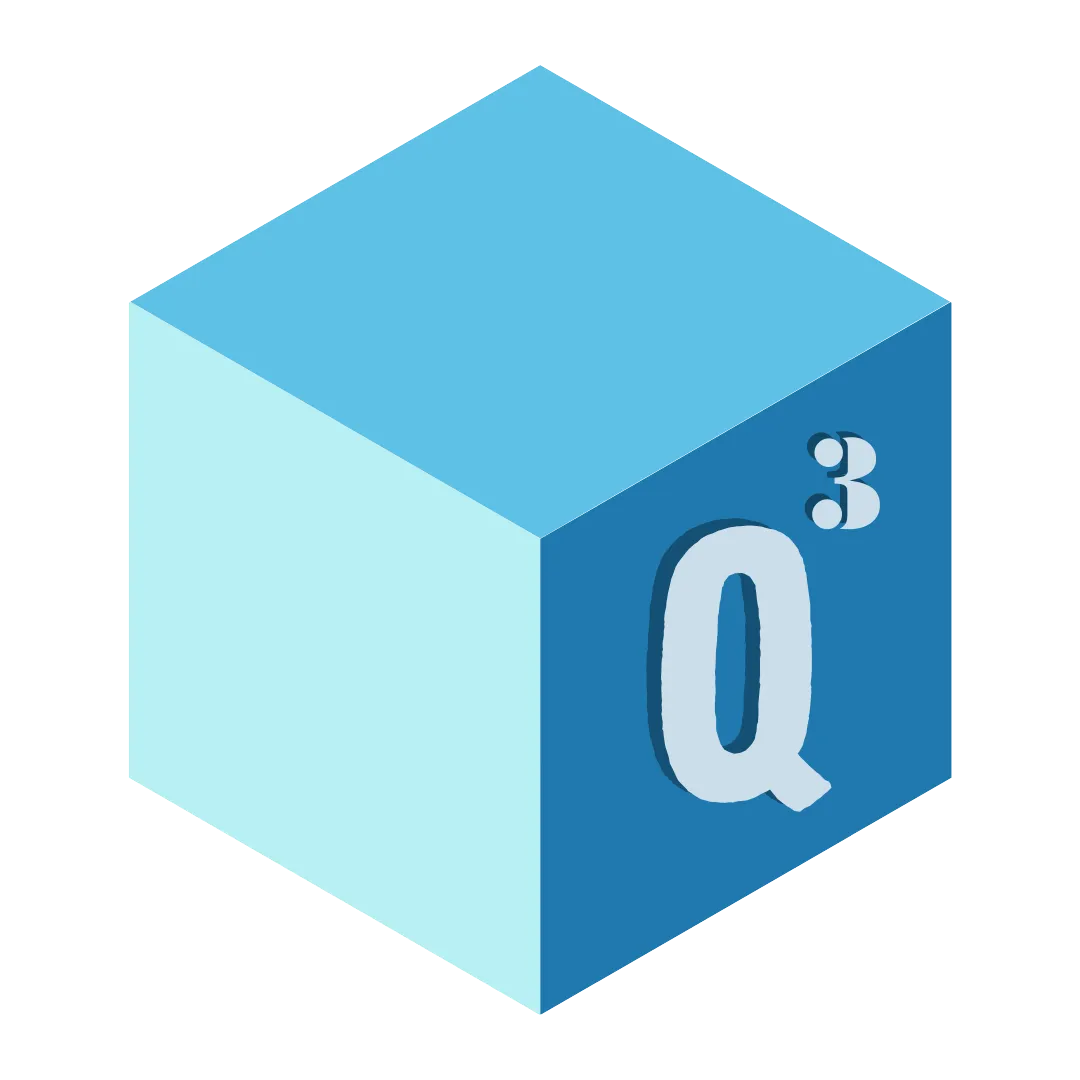
Q3 Initiative: QREATE @ UMD
Q3 is a joint quantum initiative between the University of Maryland, College Park and the University of Southern California dedicated to uniting quantum science with diverse fields such as art, policy, and economics to inspire, educate, and develop quantum technologies for the public good. The goal of Q3 is to create more quantum-related educational tools, provide learning and networking opportunities, and teach engineers more about the economics and policy of emerging quantum technologies.
UMD is a hub for quantum research and development. Here, over 200 quantum scientists and engineers are exploiting the unique properties of quantum physics to usher in a new age of technology: quantum computers capable of currently impossible calculations, ultra-secure quantum networking and exotic new quantum materials.
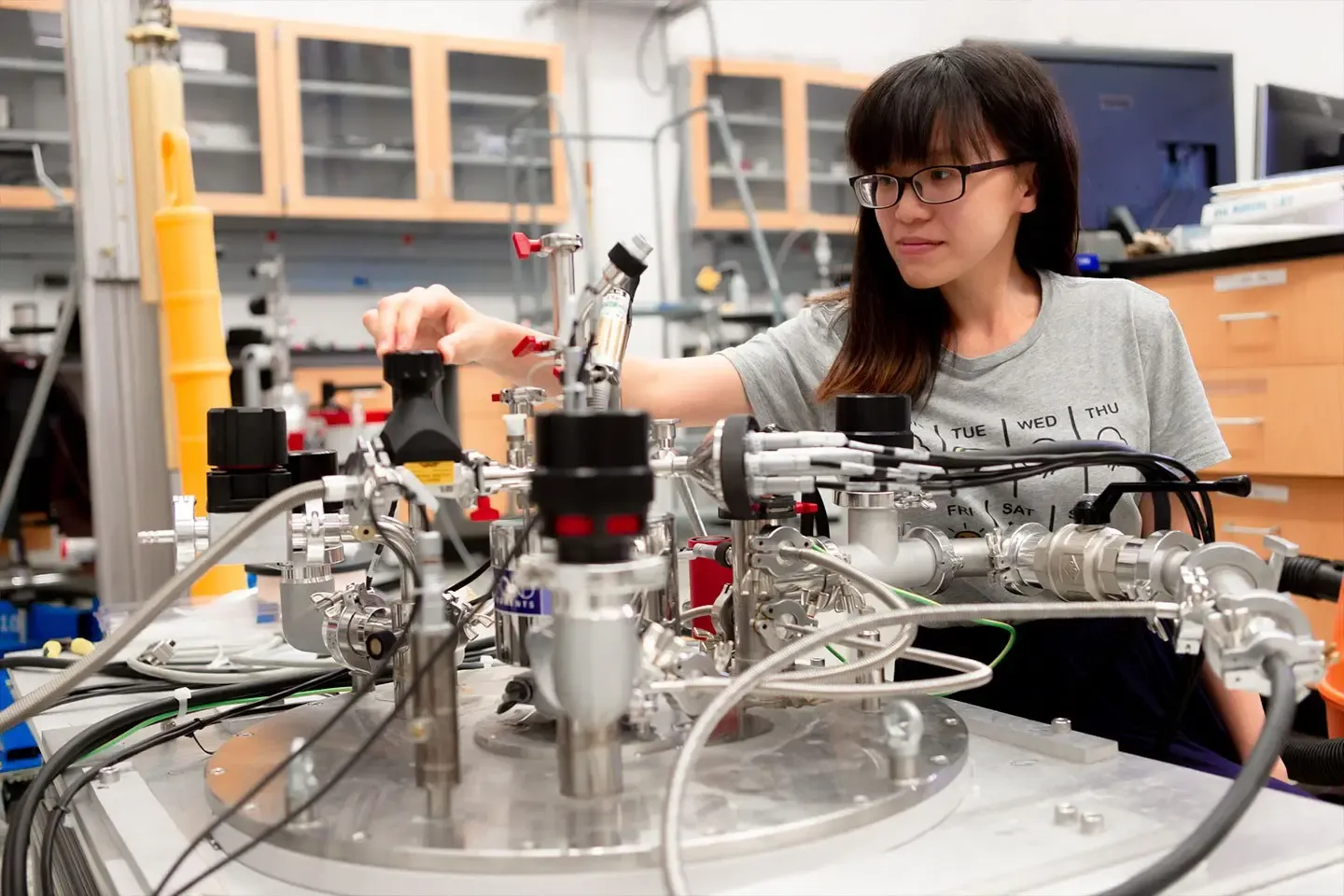
Propelled by foundational partnerships with the National Institute of Standards and Technology, the Army Research Laboratory and the Laboratory for Physical Sciences, and fueled by collaborations with major firms like Lockheed Martin and exciting startups like IonQ, UMD is home to an expansive quantum research enterprise that features world-class research institutes, global collaborations and growing government and industry connections.
30+
Years of quantum research at UMD
200+
Researchers, one of the greatest concentrations in the world
200+
Publications per year
#2
Among public institutions in quantum physics
U.S. News & World Report’s Best Graduate Schools
100+
Graduates in 10 years with Ph.D.s in physics with a quantum science focus
1
Faculty Nobel laureate in quantum physics
William Phillips
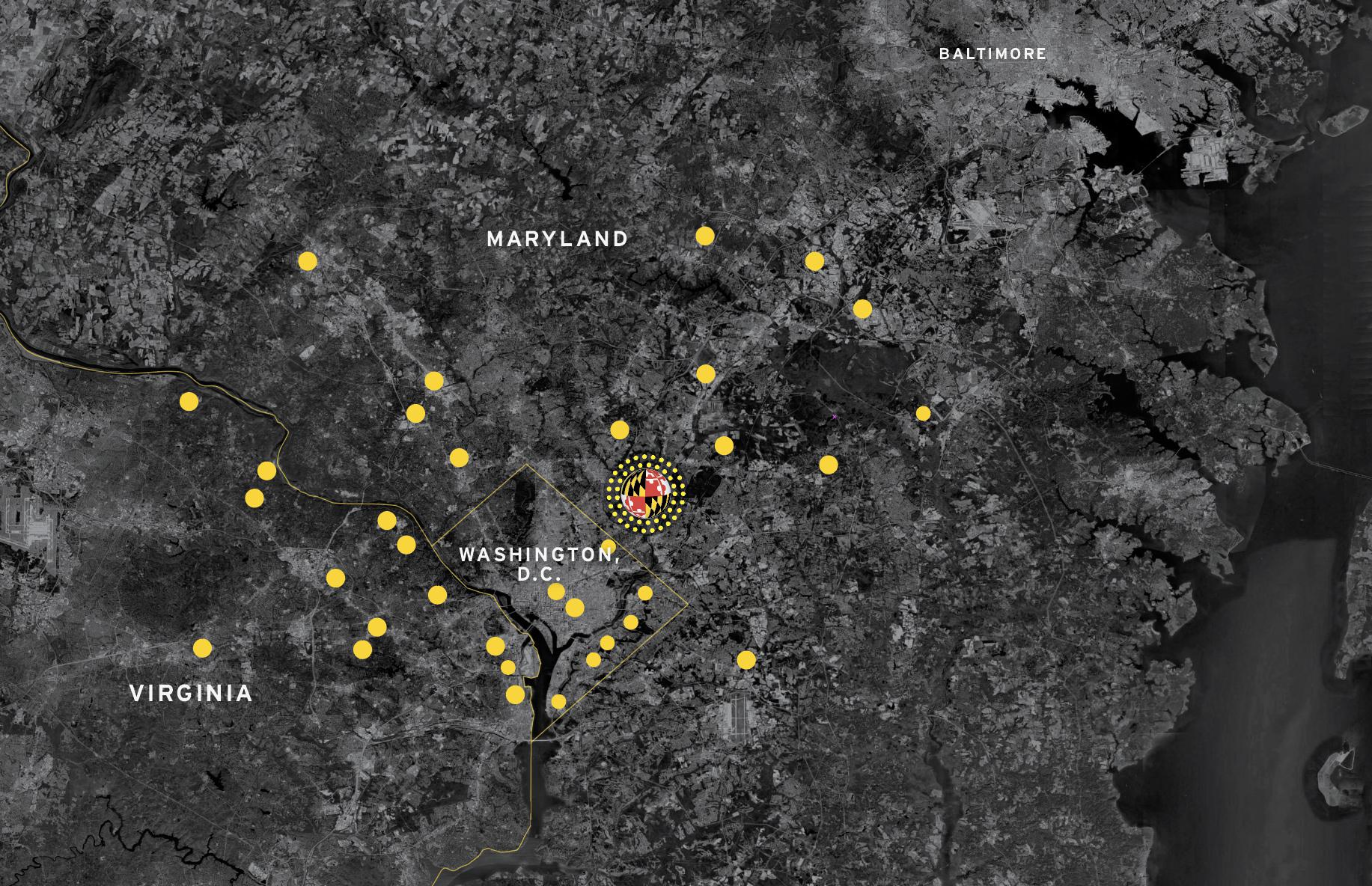
Welcome to the Capital of Quantum
Surrounded by a host of government labs and science agencies, as well as major technology firms and innovative startups and a highly skilled workforce, the University of Maryland leverages its location in the heart of the National Capital Region.
Core Quantum Entities
The map above shows federal agencies and labs, Quantum companies, Quantum resources and university-affiliated research centers. These include:
FEDERAL AGENCIES & LABS
- Air Force Office of Scientific Research
- Army Research Lab
- Defense Advanced Research Projects Agency
- Department of Agriculture
- Department of Defense
- Department of Energy
- Department of Homeland Security
- Food and Drug Administration
- Johns Hopkins Applied Physics Laboratory
- NASA Goddard Space Flight Center
- National Institute of Standards and Technology
- National Institutes of Health
- National Oceanic and Atmospheric Administration
- National Science Foundation
- National Security Agency
- Naval Research Laboratory
- Office of Naval Research
- Small Business Administration
QUANTUM COMPANIES
- Amazon Web Services
- Booz Allen Hamilton
- IBM
- IonQ
- Leidos
- Lockheed Martin
- MITRE
- Northrop Grumman
- Noblis
- Pinscraf
- Quantinuum
- Rigetti
- Xanadu
QUANTUM RESOURCES
- Applied Research Laboratory for Intelligence and Security
- BEIT
- Center for Quantum Networks
- Condensed Matter Theory Center
- Discovery Fund
- EUriQC
- Error Corp
- Joint Center for Quantum Information and Computer Science
- Joint Quantum Institute
- Laboratory for Physical Sciences
- LPS Qubit Collaboratory
- Maryland Quantum-Thermodynamics Hub
- Mid-Atlantic Quantum Alliance
- NanoQT
- National Quantum Lab (QLab)
- NSF QLCI for Robust Quantum Simulation
- Patero
- Q-Cat
- QCB2
- Quantum Materials Center
- Quantum Startup Foundry
- Quantum Technology Center
- QubitsXQubit
UNIVERSITY-AFFILIATED RESEARCH CENTERS
- Johns Hopkins Applied Physics Laboratory
- Applied Research Laboratory for Intelligence & Security
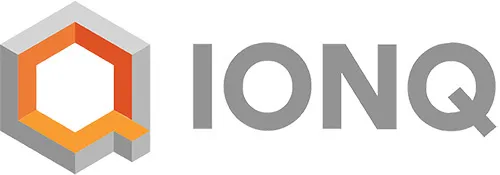
University of Maryland Celebrates IonQ's Plans for Remarkable Growth and Scalable Roadmap for Quantum Computing.
UMD’s quantum research combines physics, computer science, engineering and materials science, resulting in applications with the power to change the world. Maryland stands at the forefront in a range of vital technologies of the future:
Computing
Quantum computers leverage counterintuitive features of quantum physics to execute certain tasks faster than current supercomputers.
Cryptography
Quantum and post-quantum technologies enable new security measures for everything from communication to personal health records to national secrets.
Materials
Completely new exotic materials may improve current devices and open the door to technologies not yet envisioned.
Networks
Scientists are building optical networks to send and receive quantum information over distances large and small.
Machine Learning
Quantum physics could supercharge traditional machine learning. On the flip side, machine learning might help scientists understand and control quantum phenomena.
Systems Research
Bringing together many quantum systems and controlling them in parallel can unlock the ability to simulate complex materials and phenomena that do not occur naturally.
Sensors
Quantum systems have unique properties that can be harnessed to detect subtle environmental changes, leading to better measurement and imaging tools.
Software
Scientists are developing quantum-specific programs that will run on quantum computers and searching for new applications for these revolutionary machines.
How can the tiniest particles lead to the biggest discoveries?
MARYLAND KNOWS THE FUTURE IS QUANTUM
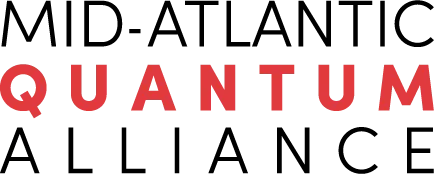
The Mid-Atlantic Quantum Alliance (MQA) was formally launched in January 2020 to accelerate advances in quantum science and engineering and further enhance the region’s primacy in a field that promises to revolutionize society. This alliance brings together world-leading quantum expertise from academia, industry, government agencies, laboratories and research centers with a presence in the region. The MQA serves as an inclusive forum, facilitated by the University of Maryland, for its members to engage and collaborate with each other on education, global thought leadership and building a vibrant and diverse ecosystem to support quantum innovation.
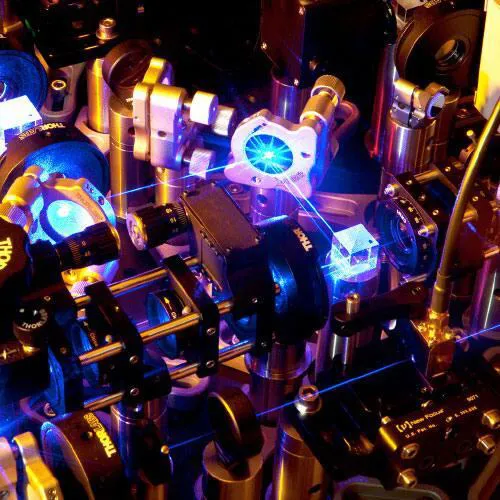
The Quantum Technology Center (QTC) joins researchers in engineering and physics to focus on translating quantum physics into innovative technologies, from sensing to communications to algorithms.
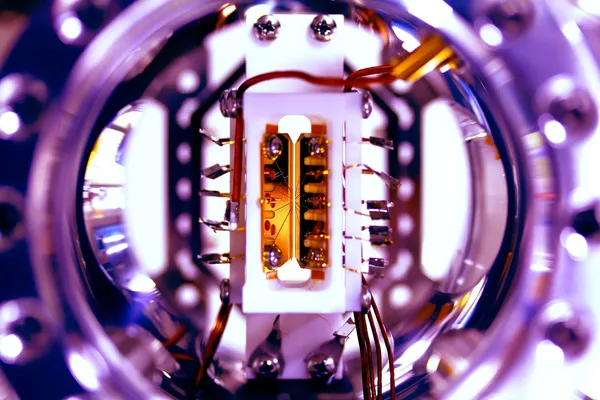
The Joint Quantum Institute (JQI), founded in 2006, is the cornerstone of UMD’s quantum enterprise. Formed as a research partnership between UMD and NIST and supported by the Laboratory for Physical Sciences, JQI is dedicated to the broad study of quantum science—from theory to experiment—on a host of platforms.

The Joint Center for Quantum Information and Computer Science (QuICS) is a collaboration with NIST that expands research at the junction of quantum physics, computer science and information theory, enabling the full potential of quantum computing.
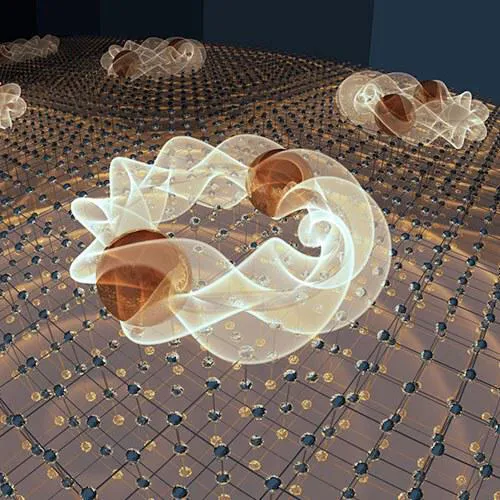
The Condensed Matter Theory Center (CMTC) has made pioneering contributions to exotic approaches to quantum computing now being pursued worldwide.
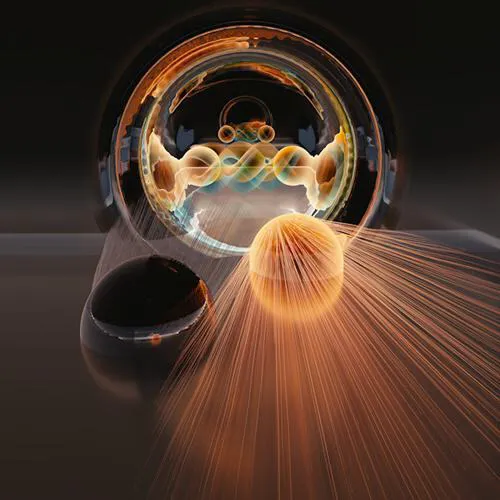
The Quantum Materials Center (QMC) is a specialized research center in the Department of Physics where scientists synthesize and explore novel quantum materials with the goal of enabling new quantum device platforms utilizing superconductivity, topology and other quantum phenomena.

The LPS Qubit Collaboratory (LQC) is a national Quantum Information Science Research Center hosted at the National Security Agency’s Laboratory for Physical Sciences (LPS) at UMD. LQC advanced the development of qubits through an innovative model of collaboration between the government and a wide range of partners across the country.
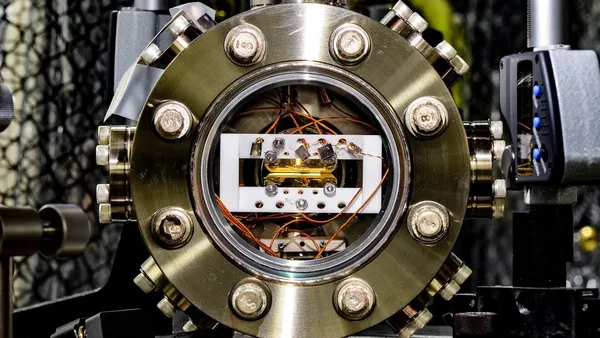
Established through a partnership between IonQ, Inc., a leading developer of quantum computing devices, and the University of Maryland, the National Quantum Laboratory (QLab) enables the scientific community to pursue world-leading research through hands-on access to a commercial-grade quantum computer. UMD-affiliated students, faculty, researchers, staff and partners across the country have an unprecedented opportunity to gain experience with IonQ’s industry-leading trapped-ion quantum computer hardware and collaborate with IonQ scientists and engineers.

Funded by the National Science Foundation (NSF) and led by the University of Maryland, the NSF Quantum Leap Challenge Institute for Robust Quantum Simulation brings together computer scientists, engineers and physicists from five academic institutions and the federal government. The institute is focused on developing quantum simulation devices that can understand, and thereby exploit, the rich behavior of complex quantum systems.
How will qubits revolutionize our region’s economy?
MARYLAND KNOWS THE FUTURE IS QUANTUM
We’re Hiring Top Quantum Talent!
Join us in the heart of the Capital of Quantum at the University of Maryland, home to one of the world’s largest cohorts of quantum scientists and engineers. We are seeking talented and passionate individuals to join the ranks of our world-class faculty.




